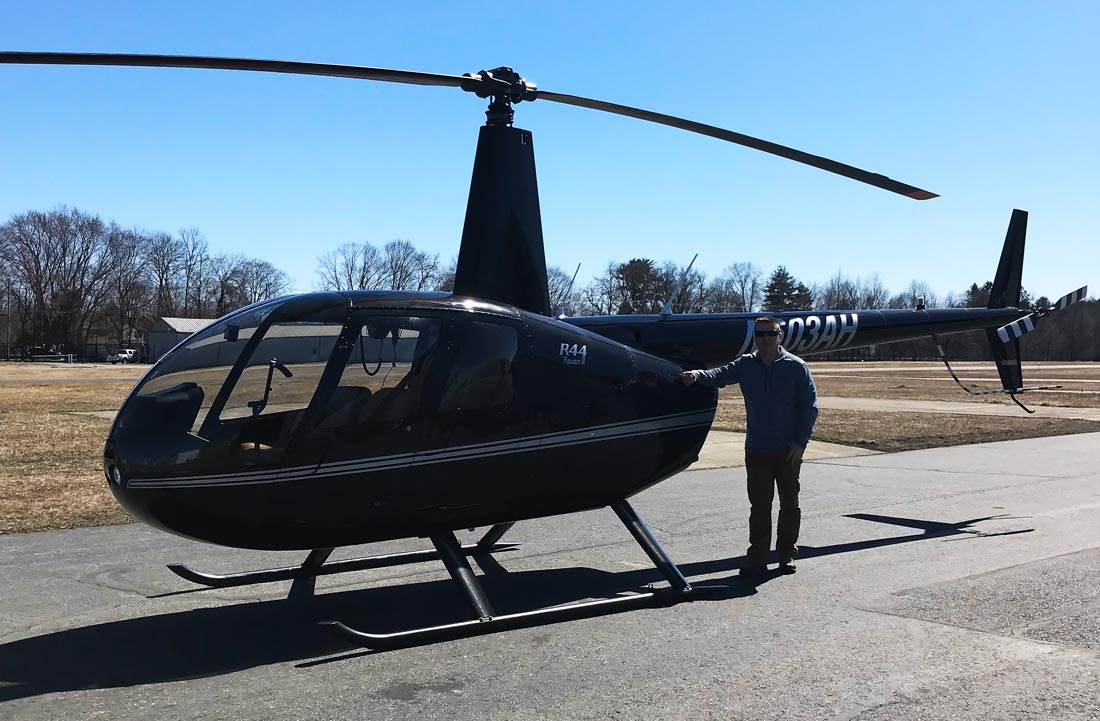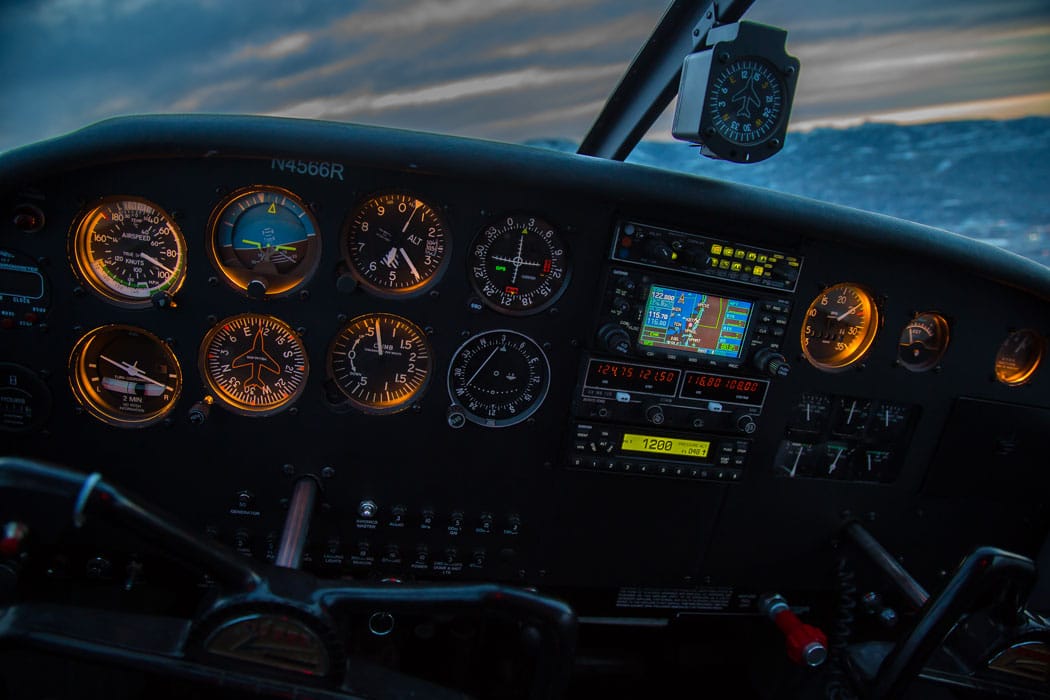Being a certified flight instructor is a noble profession and should be treated as such.
When I fly I am never alone. Even if I am the only one in the airplane, I am in the company of very special people. I’ve flown with a lot of certified flight instructors and some of them were quite good. Most were mediocre. A few were awful. And a couple were outstanding. The outstanding ones accompany me on every flight. Even though I haven’t seen some of those instructors for over 30 years their words echo in my head today.
As I thumb through my logbooks and look at the names of different instructors an immediate mental response coincides with what I experienced with each instructor. Some were jerks and made it clear they felt instructing was beneath their level of abilities. Some were really nice guys but I didn’t learn very much from them. Then there were those that trouble me somewhat because I have no recollection of them. How effective were those training sessions?
The really good instructors and the couple I consider outstanding all shared two things: They were good pilots and they loved to teach. Spiritually I suppose you might say they were “called” to teach flying. One can be a decent teacher and not be a very good pilot but I believe that is rare. I have had dual instruction from instructors who could not demonstrate satisfactorily the maneuver they were trying to show me. Conversely, I have flown with incredibly experienced instructors…those who flew with precision…who were deplorable teachers. So my criteria of being a good pilot while also loving the art (and science) of teaching is not absolute.
How Does a Certified Flight Instructor Interact With Students?
As an instructor, you must realize that your student is vulnerable, frail and unsure no matter what outward demeanor they portray. I am not suggesting that students be coddled. On the contrary, a good CFI will allow students to make mistakes and sometimes struggle. You know the difference between taking over the controls for safety’s sake and micromanaging the student. If a student is continually being “helped” on the controls by the instructor, that student is never going to develop a feel for flying an airplane.
How do you respond to a student’s mistakes? Are you aware when mistakes are made or is the student just taking you on a sightseeing junket? When you observe a mistake how do you bring it to your student’s attention? Do you come down hard on that student?
I consider the best instructor I have ever worked with was a guy named Paul. The technique I appreciated from Paul was that he would move to another unrelated maneuver that he knew I could do easily. Then he’d go back to the botched maneuver and say, “OK, let’s try another (name of troublesome maneuver), only this time, try to increase back pressure as you feel the nose dropping,” or whatever he analyzed I had been doing wrong. After taking another stab at it, he’d move on whether or not it was executed well. If it wasn’t, he’d re-visit that maneuver, interspersing it with others.
It wasn’t until years later that I realized why this worked for me. If I attempted a maneuver, screwed it up and kept grinding away re-doing it I would probably, through rote repetition, be able to mechanically do it. “Give enough monkeys enough typewriters and eventually they’ll write a book.” But that isn’t how maneuvers are needed while flying, or on check-rides. You have to have the tactile inputs in mind prior to every maneuver because you’ll probably only get one shot at it. That is what Paul was doing. He was gently honing each component of the maneuver so that it was understood and would be repeatable by me when it became necessary to initiate it cold.
An examiner isn’t interested in seeing a student being able to execute a chandelle properly only after several attempts. Going from, say, performing a stall to doing a chandelle is quite a transition and the student must know how to set up for it, plan for it and the control inputs to anticipate.
When a student is having difficulty with a maneuver and an instructor grinds and grinds away repeating it, students can develop a growing mental block that expands with each failed attempt. In any endeavor when you just can’t seem to figure it out, sometimes it works best to back away from it and try it again later…tomorrow…next week. It’s surprising how this simple strategy works and, when it does, a student relishes a good instructor’s compliment of “See? You had it in you all the time!”
How Does a Certified Flight Instructor Respond to Questions?
How do you like questions? Some student can pelt you with one question after the other and I have seen some instructors recoil. Why instructors in the profession of teaching wouldn’t like questions is beyond me, and indicates a poor instructor. A student who arrives for a lesson with questions then develops questions afterward is working hard to “get it.” Those people often tend to be the best students. A certified flight instructor is not a mind-reader and might not suspect that there was a fragment of knowledge that was inadvertently omitted. Perhaps a question will provide the missing piece of the puzzle and, suddenly, the clouds will part, the Mormon Tabernacle Choir breaks out in song and the student’s confusion is washed away.
During one of my forays into employment with a crappy airline, I was sitting in a systems class with twenty-five other new-hires. The instructor droned on for the whole morning about the aircraft’s APU and how its valves and relays clicked and moved to enable this to happen or that to happen. After an hour or so it was break time and the instructor asked if anyone had any questions. The class dispersed to the vending area and one of the students timidly approached the instructor and I overheard him ask, “What is an APU?”
The poor soul had no clue that during the previous hour the instructor was describing an aircraft engine that does nothing except produce electricity, heat, and cooling and is not used for thrust. That simple little fact would have provided the student with an understanding of what he’d just heard. But the instructor blew him off and said, “Weren’t you just in this class? Where have you been?” Sorry Bozo…I didn’t hear you describe it either, so you might discard the attitude.
A Certified Flight Instructor’s Attitude
 Finally, be likable. No one enjoys being around a person who is abrasive, somber, high-strung, condescending, foul-mouthed or abusive. There are other subjective attributes that can sour a student’s experience with you as a certified flight instructor. Don’t asphyxiate the student with your cologne and, for crying out loud, brush your teeth once in a while. In the pilot training environment, you’re in close quarters with your student and learning can become more difficult when a student tries not to inhale whenever your blowtorch halitosis fills the air.
Finally, be likable. No one enjoys being around a person who is abrasive, somber, high-strung, condescending, foul-mouthed or abusive. There are other subjective attributes that can sour a student’s experience with you as a certified flight instructor. Don’t asphyxiate the student with your cologne and, for crying out loud, brush your teeth once in a while. In the pilot training environment, you’re in close quarters with your student and learning can become more difficult when a student tries not to inhale whenever your blowtorch halitosis fills the air.
As a good certified flight instructor, you own a part of every success by your students. When they solo, you deserve to feel pride that you took a blank canvass and turned it into an attractive painting with careful brush strokes. When that student attains the left seat, that painting has achieved the status of being sold at Sothebys of London for an immense amount of money. By the time that student retires following a remarkable career, the painting you created withstood the test of time and received enough adoration to be hung at the Louvre in Paris. And the elements that made that painting sought-after during all those years was the initiative, determination, and effort expended by that student as well as the motivation and those brush strokes you contributed when the canvass was blank.
In Conclusion
Some things are set and you cannot do much about changing them, like your goals. If your goal is to be an airline pilot or a corporate pilot it might be difficult to hide your behavior based on your aspirations. But as a certified flight instructor who is meeting lots of people from all walks of life, you never know who is shaking hands with who and with whom they shake hands.
I know of three amazing stories: One buddy of mine was handed the keys to the Cessna 172 that he had trained a wealthy student in, for keeps. The student was so appreciative of the extra care his instructor invested that he provided a most tangible way of saying thanks by giving the CFI the airplane. Two other colleagues are now flying corporate Gulfstreams because their students felt they had received excellent instruction preparing each for their Private pilot certificate. And, oh yes…the students each were CEOs of large corporations planning to buy a Gulfstream.















Teaching is a gift not unlike artistic ability or mathematical ability. A certain amount of it can be taught but beyond some point you either have it or you don’t. Having expert content knowledge does’t make you a teacher. (How many college professors have you had who were brilliant but couldn’t teach?) Not many people truly have the gift but those are the gems.
Then there are the extreme cases on the other end. I knew a retired accountant in Austin back in the ’80s who bought a beautiful A36 and hired this old warhorse who was an FAA designated examiner to give him some dual in it. After 4-5 lessons the guy was so shook up he didn’t even want to start the engine, and a short time later he sold the airplane.
Any instructor who yells and is abusive is disqualified for the job. Period. I don’t care how experienced they are or how many letters they have behind their name. They frustrate learning, degrade confidence, and instill fear. In the end it is a safety issue. Get rid of them.
I recently experienced a horrific instructor at SIMCOM in Scottsdale. He was a professional pilot, whom in his prior life was an instructor with one of the large carriers. While well versed with the jet for which we were training, his demeanor and comdensending attitude felt like death by a thousand cuts. After ~50 negative under the breath comments i finally got the point, quit and walked out. I am not a professional pilot so I can understand the instructors frustration however destroying ones confidence is the wrong approach, with opposite tesults. I brought it to the schools citation program manager who did very little to rectify the situation.
Lesson for this school and other instructors; Know your student. Avoid being comdensending, be reinforcing, avoid confrontation, and be accountable. additional lesson to school – fires those that degrade confidence as there is a negative affect on the schools long term profitability.